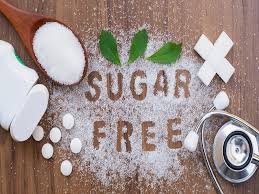Have you been told that “sweeteners” are a great alternative to sugar, reducing your risk of type 2 diabetes, heart disease and stroke, helping you with weight loss and even preventing tooth decay?
A recent research study led by Elinav lab and published in Cell in August this year, which casts significant doubts on those claims, as has been also suggested by other researchers in the past.
So, what were the findings for “sweeteners”?
👉🏻they are not only “metabolicaly inert” (i.e. no sugar, no calories) but some of them actually increased blood sugar, which would lead to poor diabetic control
👉🏻all of them (even stevia) altered healthy gut microbiome, which is so important for our immune system, healthy weight, healthy blood sugar, mental health etc
👉🏻in some studies, long term use of sweeteners not only did not help with weight loss, but actually caused weight gain
👉🏻benefits on prevention of tooth decay were also inconclusive, children who drank “sugar-free” diet soda were more likely to develop a sweet palate, craving more sweetness later on in life and consuming more sugar overall, compared to children who drank water
👉🏻recent WHO draft guidance stated sweeteners “should not be used as means of achieving weight control or reducing risk of diabetes and heart disease”
So, where does it leave us?
Can a dash of (real) fruit juice 🍹in a glass of sparkling water be a simple solution?
A glass of water with or without a slice of lemon or lime?
Our taste buds have a remarkable ability to change….. and if you dial down your preference for sweetness in your favourite drink ☕️, over time you might suprise yourself😊
#microbiome #diabetes #heartdisease
https://pubmed.ncbi.nlm.nih.gov/35987213/

